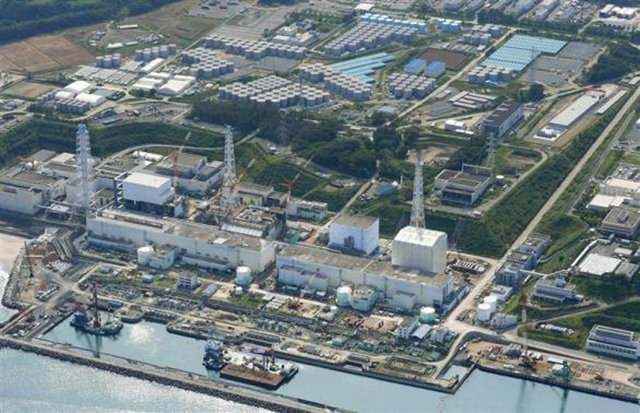Fukushima water tanks leaky and built with illegal labor– ‘Even if we didn’t agree with how things were being done, we had to keep quiet and work fast’
By Antoni Slodkowski
5 December 2013 NAHA, Japan (Reuters) – Storage tanks at the Fukushima nuclear plant like one that spilled almost 80,000 gallons of radioactive water this year were built in part by workers illegally hired in one of the poorest corners of Japan, say labor regulators and some of those involved in the work. “Even if we didn’t agree with how things were being done, we had to keep quiet and work fast,” said Yoshitatsu Uechi, 48, a mechanic and former bus driver, who was one of a crew of 17 workers recruited in Okinawa and sent to Fukushima in June 2012 – among the thousands of workers from across Japan who have put together the emergency water tanks and stabilized the plant after three reactor meltdowns that were triggered by the March 2011 earthquake and tsunami. The Okinawa crew was recruited by Token Kogyo, an unregistered broker, and passed on to work at the Fukushima plant under the direction of Tec, a larger contractor which reported to construction firm Taisei Corp, records show. That practice of having workers hired by a broker but managed by another contractor is banned under Japanese law to protect workers from having their wages skimmed and to clarify who is responsible for their safety. In September, Okinawa labor regulators sanctioned Token Kogyo after investigating a complaint by Uechi and concluding the broker improperly sent workers to Fukushima, said an official with knowledge of the order, which was not made public. The official said Token Kogyo did not have the required license to dispatch workers. Japan’s labor laws also prohibit third-party brokers from sending workers to construction jobs like the tank assembly where the Okinawa crew was employed. The sanction is a written order to improve business practice. At Fukushima, the workers from Okinawa were told by a Tec supervisor to lie to the plant’s operator, Tokyo Electric Power Co, and say they were employed by Tec, according to Uechi, three other workers, employment documents and a recording of a workplace briefing reviewed by Reuters. “People didn’t have contracts, so when they weren’t needed any more, they were cut immediately,” said Uechi. Other members of the Okinawa-hired crew confirmed details of his account, but asked not to be named. Tokyo Electric, or Tepco, declined to comment on the specifics of the Okinawa crew, citing a need to protect the confidentiality of worker complaints brought to its attention and an inability to confirm relevant facts. Taisei declined to comment in detail, saying it “appropriately instructs its sub-contractors and tightly monitors its network of contractors.” Token Kogyo declined to comment on Uechi’s case but confirmed it had sent some workers to Fukushima from Okinawa. Tec did not respond to repeated requests for comment. [more]
Insight – Fukushima water tanks: leaky and built with illegal labor
